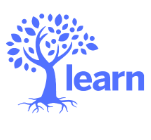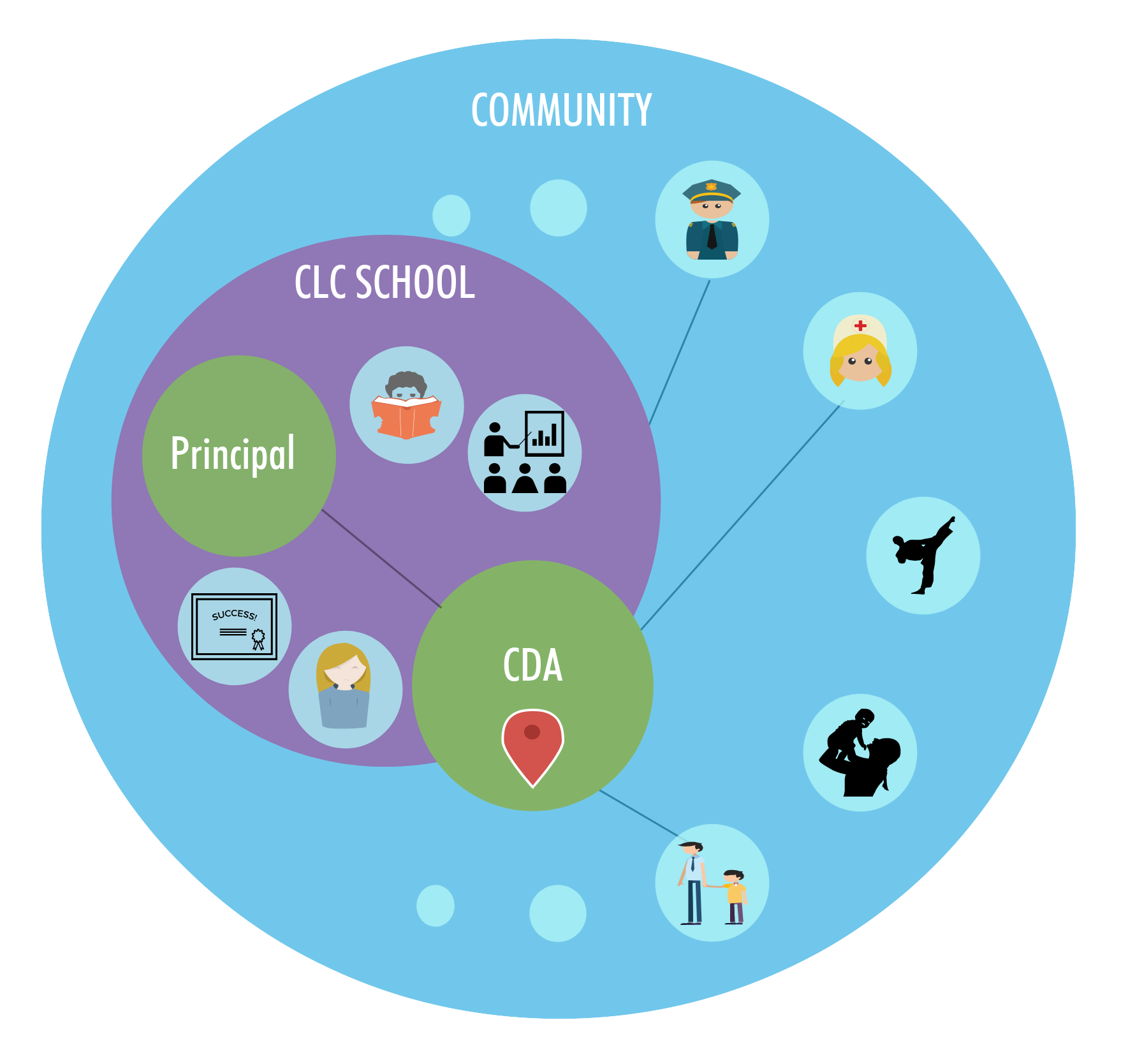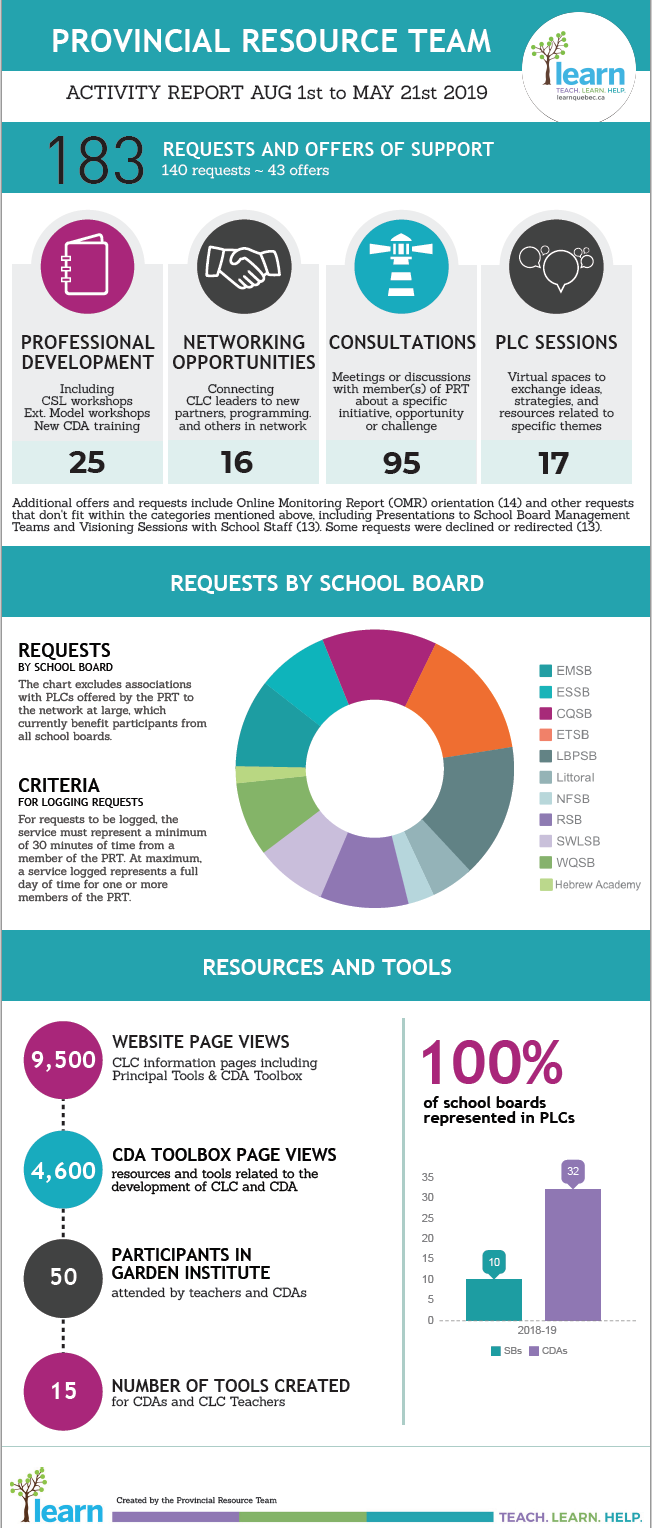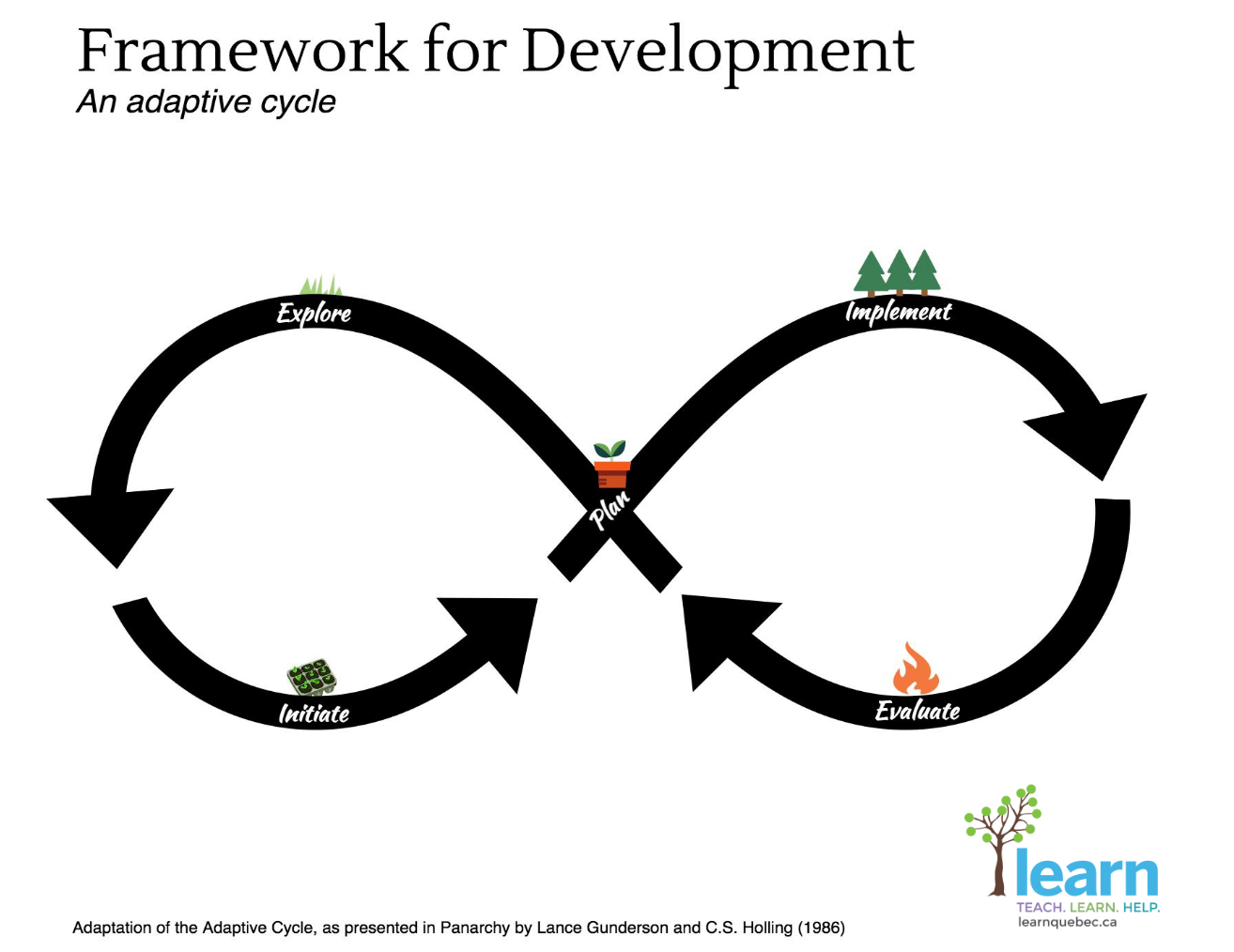About the CLC
In the province of Quebec, English-speaking communities do not always have equitable access to education or health and social services. Community Learning Centres (CLC Schools) have a dual role in Quebec: supporting student success and contributing to the vitality of English-speaking communities. CLC school teams are supported by LEARNs Provincial Resource Team (PRT), providing coaching, mentoring, capacity-building, and professional development training.
What is a CLC School?
Schools that are Community Learning Centres invest in partnerships that provide a range of services and activities, often beyond the school day, to help meet the needs of learners, their families, and the wider community. Their aim is to support the holistic development of citizens and communities.
Some of the key results anticipated from CLC schools are:
• Provide access to the conditions deemed necessary for student success
• Respond to the particular culture and needs of the communities they serve
• Provide services that are accessible to the broader community
• Deliver a range of services that are self-supporting and sustainable over time
• Integrate existing services and resources with those available from external agencies
• Develop financial/resource partnerships that ensure long-term sustainability
• Resonate within their communities as a successful response to their needs
• Demonstrate flexible and innovative approaches to service delivery
CLC 1 Pager - Download File ![]()
How LEARN's Provincial Resource Team (PRT) Helps
LEARN's PRT works with regionally and provincially mandated organizations to generate resources, programming and funding opportunities for schools belonging to the CLC network. The PRT advocates for the CLC Initiative as a whole, enabling all CLCs, schools and school boards to benefit from greater recognition and community support.
To support the ongoing development and success of the Community Learning Centre Initiative (CLC), which includes 86 English language schools/centres across Quebec, LEARN's Provincial Resource Team (PRT):
• Develops and updates the conceptual framework for CLC development, along with accompanying materials and training opportunities for participating schools and school boards
• Provides group and individualized coaching, mentoring and targeted professional development to CLC leadership teams, including regional meetings, Professional Learning Communities and network-wide training opportunities;
• Offers support and training opportunities for teachers interested in developing Community Service Learning projects;
• Mobilizes and develops provincial partnerships to expand access to resources for the CLC network and the broader English-speaking community of Quebec;
• Promotes community engagement and shared responsibility for student success;
• Increases visibility of the English-speaking community and awareness of the CLC Initiative, using data to inform strategy and policy development.
Community Schools Framework for Development
To see the full page on the CLC Framework go to page ![]()
The Framework for action was developed based upon existing research and literature about best practices in organizational development and how community schools have developed in other communities and countries. Grounded in research and best practices.
The Framework is a planning tool that consists of five major action steps that are to be undertaken by schools/centres and their community partners to develop their CLC. In general, CLC schools develop action plans (theories of change) that focus on student success and community development. The Framework developed for CLCs is not a blueprint but an open-ended guide.
Its purpose is to:
- Be comprehensive but practical
- Work with existing policy and practice
- Respond to the needs of all partners
- Advise, not prescribe
Throughout the process, the Provincial Resource Team supports the capacity development of CLC Community Development Agents and stakeholders.
The five major action steps in the framework are:
EXPLORE the creation of a CLC: a formal partnership of one or more schools/centres, public or private agencies and community groups, working together for the benefit of students, families, and community.
INITIATE the partnership, a key transition point where commitment replaces contemplation. From afar, the steps look the same for any CLC but up close they will be different, depending on local context.
PLAN and develop a Theory of Change, which maps the ‘pathways to change’.
IMPLEMENT the theory of change developed in the previous step.
EVALUATE the performance of the CLC in accordance with steps 3 & 4 and the theory of change.
• The CLC Guidebook: Steps to Development Download![]()
• Trousse de ressources CSC Download![]()
History
The CLC Initiative was established in 2006 by the Secteur Services la communauté Anglophone of the Quebec Ministry of Education to help English schools build partnerships in their communities. CLC Schools have a dual role in Quebec: supporting student success and contributing to the vitality of English-speaking communities. In CLC Schools, a dedicated community development agent (CDA) works closely with their school principal(s) and staff to establish mutually beneficial partnerships with community-based organizations, municipalities, local businesses, families, and community members. These partnerships result in support to community and school improvement through enhanced access to recreational, educational, social, and cultural opportunities for youth, families, and the English-speaking community at large.
Funded through the Canada-Quebec Agreement for Minority Language Education and Second Language Instruction, the CLC Initiative was launched in 15 schools and adult centres. Today the network has expanded to include more than 80 schools and adult education/vocational centres, located in urban, rural, and remote communities across the province. CLC school teams are supported by LEARNs Provincial Resource Team (PRT), providing coaching, mentoring, capacity-building, and professional development training.
Based on the recognition that it takes a village to raise a child, the community school movement has been growing in Europe, Australia, the USA, and Canada over the past 15 years. Community schools are a strategy, not a program. They are both a place and a set of partnerships between the school and other community resources. Its integrated focus on academics, services, supports, and opportunities leads to improved student learning, stronger families and healthier communities. Schools become centers of the community, open to everyone, they transform schools and communities.
-National Center for Community Schools Go to site![]()




 FACEBOOK
FACEBOOK TWITTER
TWITTER
 INSTAGRAM
INSTAGRAM LINKEDIN
LINKEDIN